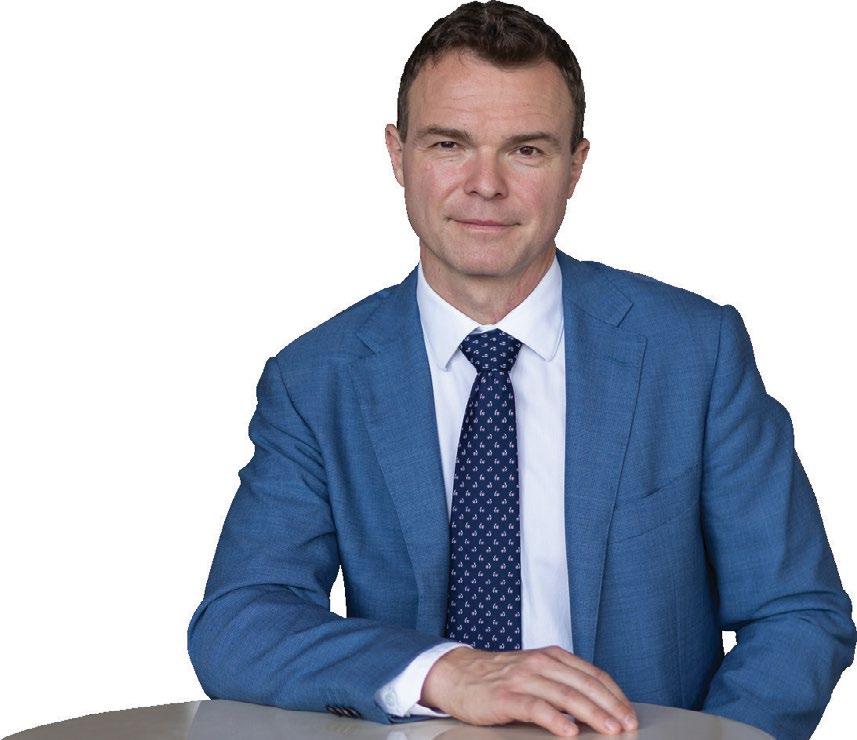
3 minute read
Home dialysis can change patients’ lives
from NorDocs Winter 2021
by NRGPN
Nearly 15,000 Australians with end stage kidney disease are receiving dialysis treatment, with around 75 per cent receiving in-centre haemodialysis, and the remainder undertaking home-based therapy (30 per cent being on home HD and seven per cent on home peritoneal dialysis).
If a person’s own kidney function is reduced dialysis is used to clear toxins and regulate the fluids that the body ingests or generates.
Advertisement
Where clinically appropriate, home dialysing is preferable because of its convenient access, and in appreciation of this, the Northern NSW Local Health District is assisting patients with kidney disease to undertake the procedure from the comfort of their own home. According to Chronic Kidney Disease Nurse Practitioner Graeme Turner more patients should consider the home-based treatment, as it can provide many lifestyle benefits.
“While not all patients are eligible for home dialysis, it’s a great option for people who are after a flexible treatment program,” Mr Turner said.
“There are a range of home dialysis options which have different requirements and benefits. With our renal team, patients can choose which type of dialysis best suits their lifestyle and abilities in light of their medical circumstances. Home dialysis means people can go about their day, and then connect to the machine overnight, receiving treatment while they sleep.”
The NNSW LHD has a team of renal clinicians and specialist training units to provide support to patients using home dialysis, including teaching them how to administer the treatment and self-needle.
As part of home dialysis training, Casino resident Corey Dunn learnt how to get the machine ready, take measurements and troubleshoot any issues: “Everything the nurses usually do in the centre, they teach me how to do at home, so I can set up my own machine and solve my own problems.
“Once I’m at home doing this, I will have time to return to work, and have a better lifestyle. I feel a lot more in control and independent now that I know how it all works,” Mr Dunn said. Corey Dunn and haemodialysis

Shirley and Alby Ross - home dialysis
Banora Point resident Alby Ross started home dialysis in his 70s. For him, the flexibility to do the treatment at a time that suited him, and the ongoing support, were major factors in his decision: “You can do it any time you like, and it becomes part of your life,” Mr Ross said.
“The nurses inspire confidence in people. There’s plenty of support there, and that’s what you need. They’re there 24 hours a day.”
Peritoneal dialysis and extended hour home haemodialysis prevents large osmotic and volume shifts from occurring. Since this is more physiological it is also more pleasant for patients. In addition there are cardiovascular and survival benefits and the risk of hospital-acquired infection is eliminated.
Local nephrologist, Dr Sanjeev Baweja, is promoting these benefits to the North Coast community. Dr Baweja has stated, “That despite the clinical, social, lifestyle and economic advantages of home-based dialysis, the proportion of home-dialysis patients in the Richmond/Clarence region is low at 20% compared to the national target of 50%.
“In order to increase its uptake a culture of ‘Home Dialysis first’ for suitable patients needs to be adopted with consistent messaging from the primary care physicians and specialist teams.”
More information on home dialysis is at Kidney Health Australia and on the NNSWLHD website renal services page with links to local patient videos.
Dr Anthony S Leslie

BSc, MBBS, FRACS Provider No: 253312LL VASCULAR AND ENDOVASCULAR SURGEON CONSULTING ROOMS 79 Uralba Street, Lismore NSW 2480 (Opposite Lismore Base Hospital)

Contact details: Ph: (02) 6621 9105 Fax: (02) 6621 8896 WEB: - www.coastalvascular.com.au EMAIL: - info@coastalvascular.com.au
24 Hour Advice Hotline 0401 175 995
Dr Dominic Simring
BSc(Med) MBBS(Hons) FRACS (Vasc) Provider No: 2382248J VASCULAR AND ENDOVASCULAR SURGEON

Our mission at Coastal Vascular Group is to lead, promote, and support excellence in vascular surgery and to provide pa�ents in Northern New South Wales access to the latest technologies with an emphasis on minimally invasive techniques.











